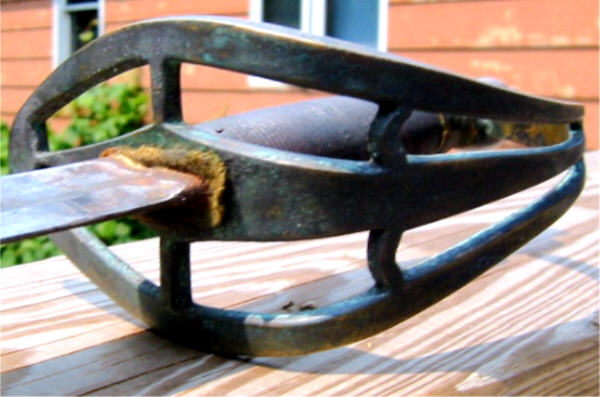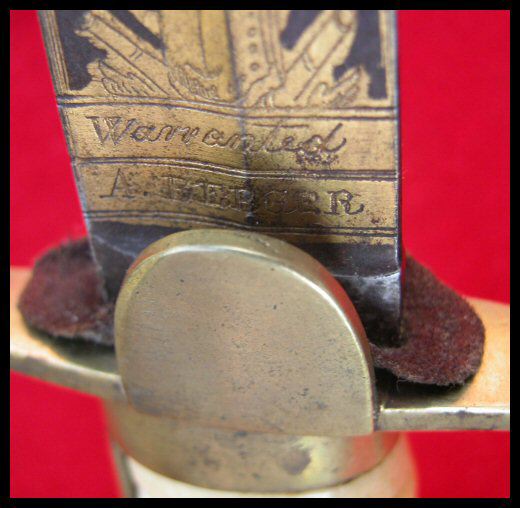I've owned the Windlass Captain's Hanger for a few years now. I have antiqued it, sharpened it, and done some test cutting. As time has gone by, the blade has loosened in the grip - enough to affect the sword's performance. I have disassembled the hanger in an effort to see where improvement can be made. The tang is threaded and attached via a pommel nut. I the grip is slightly too small for the tang, but the real issue is the guard. As the pictures below show, there is a gap between the guard and the blade which is allowing for wobble.
My question to those with experience working on their swords is, what is the best solution here? Ideally I want the hilt to be tight enough to continue to use this sword for test cutting. When re-assembling the sword I can tighten the pommel nut snugly, however I suspect that it will come loose again soon after use.
The pictures below are for reference - any and all input is greatly appreciated.

[/URL]

[/URL]

[/URL][/img]
 [/URL]
[/URL]
 [/URL]
[/URL]
 [/URL][/img]
[/URL][/img]

